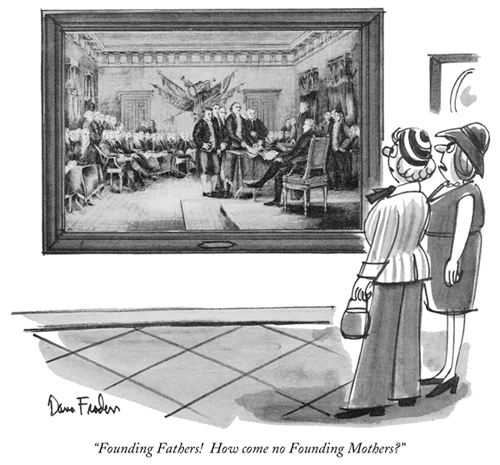Bill Spohrer had done about as
much as anyone you ever met to lift organized cargo when he served
as CEO of Miami-based Challenge Air Cargo. He became a driving force
of a great all-cargo enterprise based at MIA that landed four square
behind a new idea for a trade show called Air Cargo Americas and also
helped lift the comeback of TIACA. Bill celebrated reaching 90 years
of age last June 11th.
Today, living
quietly and comfortably out of touch in Florida with wife Lynn, Bill
is smiling his way toward 91 years of age in just about four months.
Doesn’t get around much anymore,
but here we recall some things from a lifetime of our coverage, including
the 18 years he labored as the boss of a dynamic air cargo enterprise—Challenge
Air Cargo.
Truth be told, what Bill
has done with his life is a stirring and inspiring story for the ages.
Bill Spohrer has travelled extensively
on the high road to adventure. His story has the excitement and immediacy
of a Zane Grey novel straight out of the history he helped create.
“Fly
the ocean in a silver plane—
See the
jungle when it’s wet with rain.”
Bill
has done both many times.
What’s
more, his life has been within reach of the air cargo industry for
more than 60 years.
When “Gentleman”
Bill Spohrer came upon the scene at Miami International Airport, air
cargo operations were dominated by the likes of Pan American, Slick
Airways, Eastern and National Airlines.
When
he “left” 23 years ago, having sold the airline he founded—Challenge
Air Cargo to UPS—Bill had among other things transformed what
was “Corrosion Corner” at the airport into something else.
Once upon a time, at MIA there was a
collection of old Curtiss C46s, DC3s, Lockheed Constellations and
other itinerant, even more mysterious aircraft, which shifted uneasily
with the tide of a cargo construction boom at the airport, moving
in and out every night on little cat’s feet.
“Corrosion
Corner,” situated at the northwest corner of the field, is where
in the early afternoon nacelles for reciprocating piston engines were
strewn about the hardstand as mechanics labored under the intense
South Florida sun, patching up dogged old sky wagons for one more
assignment as air cargo carriers.
During
the dark, early morning hours while everyone else slept, Corrosion
Corner Miami was wide-awake like twelve o’ clock high, with
cargo on the move.
Here, loadmasters
barked out instructions in Spanish to ground crews, as half century
old cranky, sputtering engines come to life.
Later
a parade of vintage aircraft moved slowly away like silver ghosts
glinting in the moonlight, laughing in throaty growls at having once
more cheated a nearby crane that relentlessly chops up the less fortunate.
Today in 2022 at Miami International,
where a colorful and rich part of airport history and legend are recalled,
there stands a giant, around-the-clock, automated refrigerator, surrounded
by the streamlined cladding of a modern air cargo transfer facility.
It’s a giant reefer masquerading
as a cargo terminal emblazoned with the name UPS, as a center point
created by, you guessed it, Bill Spohrer for what today is an integral
entire string of buildings more commonly called “the cool chain.”
Bill Spohrer very early saw the handwriting
on the wall and ramped up the Challenge Air Cargo Terminal into a
new landmark for air shippers at Miami International Airport.
Miami of course owes much of its standing
in the world of air cargo to the shipment of perishables.
Miami
International Airport moves more perishables than all the other airports
in the USA combined.
So UPS, known
for having an eye for a good thing, decided to make a big entry into
South America, adding service to a couple dozen destinations served
by Challenge and in the process got the big, automated reefer operation
located at one corner of MIA, as part of the bargain.
After
the purchase, Bill Spohrer stayed on with the UPS team at Challenge
for a while to work things in for the new owners, and to basically
show them the ropes in Latin America.
After
all, the man did have the plan, and he was well-known and respected
everywhere.
Bill, able to speak
several languages, including French and Spanish also knew the Latin
American air cargo market like the back of his hand.
But
eventually it was time to move on.
Post
Challenge Air Cargo, a small bed and breakfast interest up in the
panhandle area of Florida provided some focus in another area, plus
an exercise in broadened horizons, not to mention a respite from aviation.
Bill Spohrer had always been an explorer.
He enjoyed discovery not from an arm chair, but out in the wild, where
the “challenge” is in your face and real.
When
we were assembling our landmark 250-page picture book on the history
of Miami International Airport 39 years ago we learned that Bill
once spent three months exploring the Mosquito Coast of Honduras.
There have been other multi-month “interludes”
in Bill Spohrer’s life, including an early latch up with Eugene
Fodor, the guide book guy.
Bill
traveled all over South America creating the first, truly great descriptive
guide of the continent.
In the beginning
as a young man, Bill Sphorer was tutored in the Latin American airline
game, first by legendary Lowell Yerex who founded the TACA chain of
airlines during the 1930s, and later by C.N. Shelton who took on mighty
Panagra with his TAN “barefoot airlines,” providing service
down the west coast of South America much in the fashion that Southwest
and Jet Blue operate low-cost airlines today.
But
when the music stopped at Miami International Airport, the UPS job
completed, Bill reached back across the decades to make a sentimental
journey back to Saigon (Ho Chi Minh City) taking a trip to Vietnam
where he had served as aide-de-camp in 1954 to the American Advisory
Group commander there.
Once again
to Southeast Asia, Gentleman Bill moved about Saigon, looking for
what might be left or ever became of an era out of Graham Greene’s
book “The Quiet American.”
Back
to the main streets of that beautiful and still intriguing city, where
Bill and his lovely wife and alter-ego Lynn set up headquarters in
the ante-bellum Hotel Continental with its big slow motion ceiling
fans and French and American expatriate café society.
“I
just wanted to see if I could remember the places and times of nearly
fifty years ago,” Bill told me.
A
last journey of discovery most lovely to recall had Gentleman Bill
and two companions,—lifelong friends, on an extended trip of
discovery down the Mighty Amazon River in Brazil.
“You
hear about the Amazon River, as images of jungles and swamp wild areas
are conjured by the name,” Bill said of that trip 20 years ago.
“The truth is that the Amazon
that we think we know is nothing at all like the reality of traveling
through an area as big as Montana and California.
“Our
trip began in Manaus.
“Our
mode was one of the hundreds of three-deck river boats that stand
for transportation in that part of the world
“The
three of us (one of the men, a travel writer who was 87 years old
at the time) boarded this quite plain, but clean and well-kept river
boat, not unlike the big side wheelers of the Mississippi minus the
side wheel.
“We rode first
class on the top deck which costs a grand total of $18 bucks a day
including meals.
“Of course
you need to bring your own hammock which is strung up at night, up
there for sleeping.
“Bathroom
facilities are exactly one unit for boys and another for the girls.
“Meals were rice and beans with
either pork or chicken.
“But
you know something?
“We all
had a great time of it!
“We
were traveling with native Brazilians,” Bill recalled,”
who lived throughout the area, as they moved from town to town on
the river.
“The local people
are for the most part, quite poor.
However
the civility that was evident between everybody aboard our boat as
we moved on the Amazon was remarkable.
“There
just was never a voice above normal decibel. Despite the close quarters
everyone was just great.
“My
colleagues wrote, read books and generally got off and on the boat
at every stop using the opportunity to explore a dozen small villages
along the way.
“We saw jungle
and also high cliffs and bluffs, ridges and foliage reminiscent of
manicured English gardens at various stages of our journey.
“But
for three weeks not one person we encountered, spoke a single word
of English.
“I must admit
the contrast to everyday life was quite wonderful, not to mention
the learning curve for advancing my use of the beautiful Portuguese
language,” Bill said.
“I
also managed to learn something else. For years I have been stuffing
aircraft full of freight. But when I stood wide eyed and saw how these
river traders on the Amazon stuff dripping oozing crocodile skins
into the lower holds of the river boats, I felt like a kid in school
again.
“Now that kind of work
is the real cargo business, unadorned and right down to cases. Imagine
what the people who go into those holds to retrieve the shipment of
skins have to be made of, considering conditions after the skins have
been packed away for a couple of days?”
Like
we said at the top, Gentleman Bill made easy work out of discovery.
Although that life is in the past, it
is grand to recall an air cargo pioneer talking about challenging
the Amazon river a couple of decades ago, when now he has lived long
enough to see an air cargo company named Amazon on top of the world
the world, with 400,000 drivers worldwide, 40,000 semi-trucks, 30,000
vans, and a fleet of more than 70 all-cargo aircraft.
There
is something tremendously uplifting about Gentleman Bill Spohrer.
He is unique of all the people that
we have met in our years covering air cargo.
What
his life, so well-lived that thankfully continues today, tells all
of us is that there is always a reason to explore new horizons, or
to visit old haunts and enrich our appreciation of history.
“Just
like Mike” was an oft heard phrase by kids paying tribute to
the great basketball star and hero, Michael Jordan.
For
me, I am hoping for a week, a river and if allowed, a hammock when
its 90 in the shade, to be just like Bill.
Keep on keepin’ on, dear friend.
Geoffrey
Arend |
|







